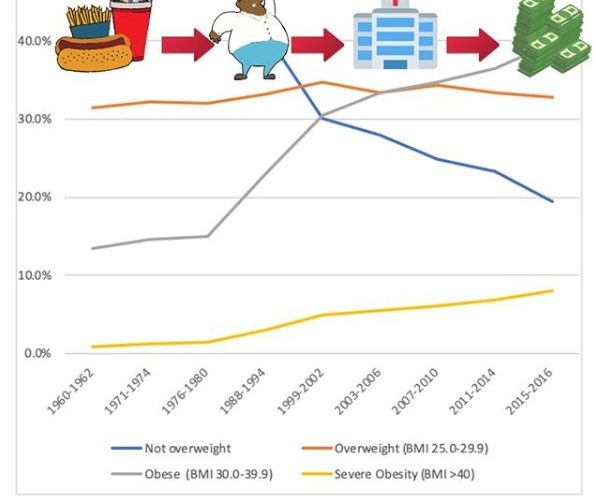Weight loss is clearly of primary concern to Americans, but the healthcare industry doesn’t seem to have a good solution. America doesn’t have a healthcare system; we have a sick maintenance cabal.
Between 1989 and 2016, the average American gained 29 pounds and spent more than $1 trillion on weight loss products. In 2016 alone, chronic diseases driven by the risk factors of being overweight or obese accounted for $480.7 billion in direct health care costs in the U.S., with an additional $1.24 trillion in indirect costs due to lost economic productivity. The total cost of chronic diseases due to obesity and overweight was $1.72 trillion, equivalent to 9.3 percent of the U.S. gross domestic product (GDP). Obesity as a risk factor is by far the greatest contributor to the burden of chronic diseases in the U.S., accounting for 47.1 percent of the total cost of chronic diseases nationwide.
Obesity has become such a significant independent disease that over the past 20 years, a completely new sub-specialty of obesity medicine has developed. Obesity affects more than one-third of the population, but less than 2 percent of obese individuals in the United States are actively treated, and of those treated, less than 10 percent manage to maintain weight loss.
Despite the fact that widespread obesity is a relatively new disease, associated with multiple reversible lifestyle factors, most of the clinical research funding and physician education has been geared towards medication management rather than lifestyle intervention. Using this standard of care approach, only 1 in 167 patients maintains weight loss.
Recommending dietary changes, as well as not prescribing medications, both erode profit margins for Big Food and Big Pharma. There is no money for them in a healthy population; all the money is in sick care.






